
Article
Browse an alphabetical list of articles about the Holocaust and World War II. Learn more about topics such as the Nazi rise to power, how and why the Holocaust happened, life in Nazi camps and ghettos, and the postwar trials.
<< Previous | Displaying results 1051-1060 of 1086 for "Article" | Next >>
-
What is Genocide?
ArticleThe term genocide refers to violent crimes committed against groups with the intent to destroy the existence of the group. Learn about the origin of the term.
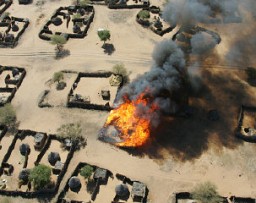
-
The White Rose Opposition Movement
ArticleThe White Rose, led by students including Hans and Sophie Scholl, was an anti-Nazi group during WWII. Its members spread leaflets denouncing the regime.
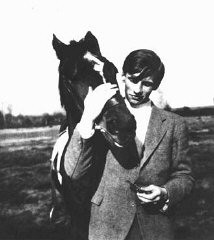
-
Who Tried the Case?
ArticleThe prosecutors for the trial of Nazi war criminals at Nuremberg came the victorious Allied nations—the United States, Great Britain, France, and the Soviet Union.
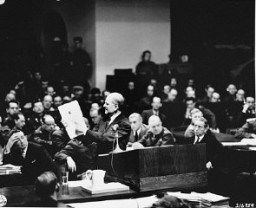
-
Who Was Put on Trial?
ArticleThe International Military Tribunal charged 24 defendants representing a cross-section of German diplomatic, economic, political, and military leadership.
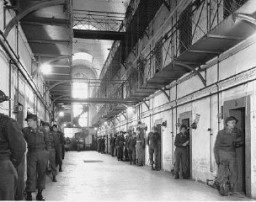
-
What Groups of People did the Nazis Target?
ArticleJews were the primary targets for mass murder by the Nazis and their collaborators. Nazi policies also led to the brutalization and persecution of millions of others.
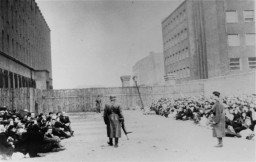
-
Elie Wiesel Timeline and World Events: 1928–1951
ArticleSurvivor Elie Wiesel devoted his life to educating the world about the Holocaust. Learn about key events in the world and his life from 1928–1951.
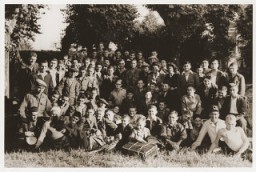
-
Wilhelm Frick
ArticleBrief overview of the charges against Wilhelm Frick during the International Military Tribunal at Nuremberg. Frick was Reich minister of the interior 1933-1943.
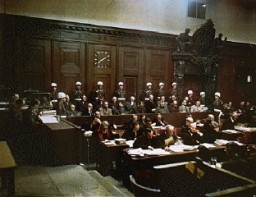
-
Wilhelm Keitel
ArticleBrief overview of the charges against Wilhelm Keitel, German Armed Forces High Command leader, during the International Military Tribunal at Nuremberg.
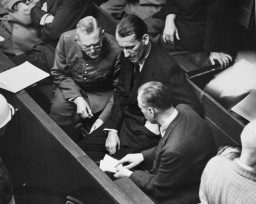
-
Wilhelm Keitel: Biography
ArticleField Marshal Wilhelm Keitel was commander of all German armed forces during World War II. Learn about his military career and postwar trial.

-
William L. Shirer
ArticleAmerican journalist, foreign correspondent, author, and pioneer radio broadcaster William L. Shirer was one of the key observers and chroniclers of the Nazi regime.